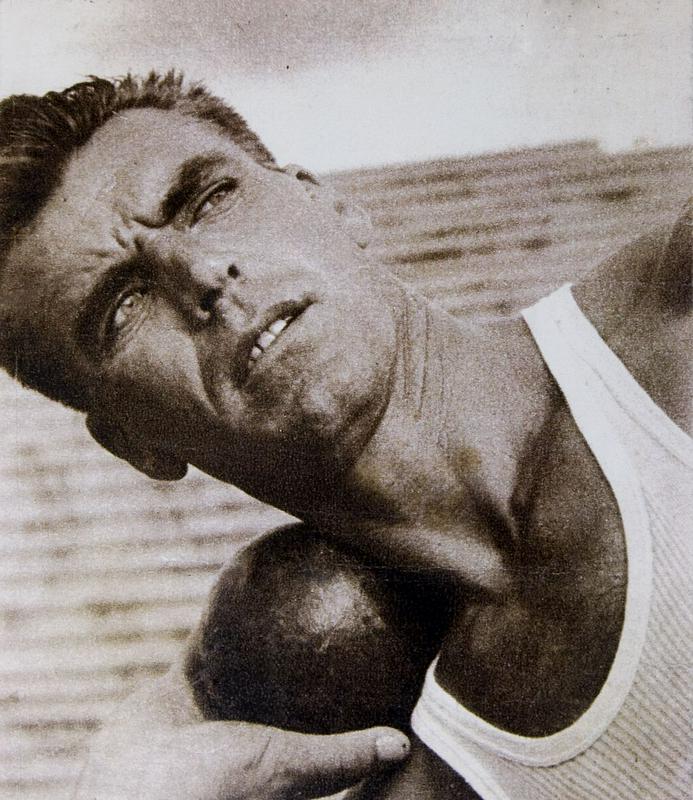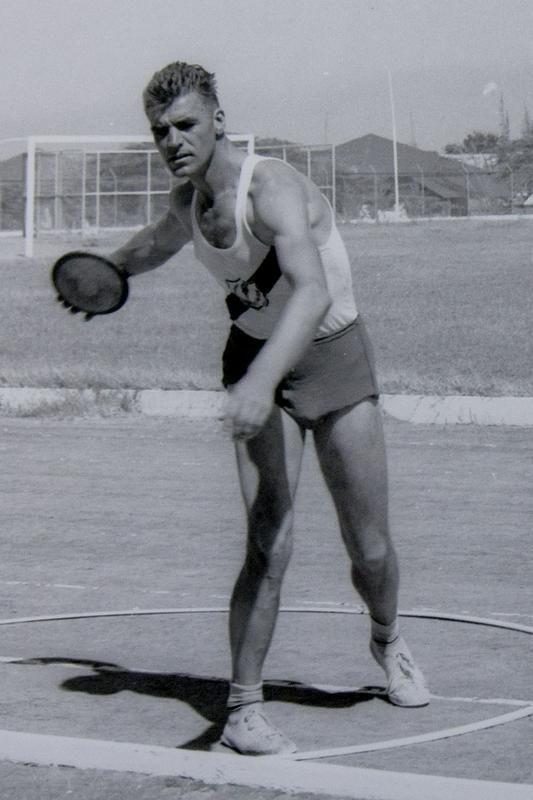

Danilo Žerjal, a little-known Slovenian athlete, excelled in three different track-and-field disciplines and competed for three different countries, but he died almost forgotten and was buried in an unmarked grave.
Žerjal was born in 1918 in the small village of Dutovlje on the Karst Plateau, then a part of Italy. Even as a child, he liked to throw around various objects, and he quickly emerged as a highly skilled athlete, particularly in shot put and discus throwing. He continued to compete when he was drafted into the Italian Army, and soon became one of Italy’s best competitors in both disciplines. In 1944, he joined the Partisan resistance and was among the soldiers who helped to liberate his native Primorska region from Fascist rule.
In 1945, Žerjal moved to Belgrade, the capital of Yugoslavia. In the years that followed, he added the hammer throw to his repertoire and competed in both the European Championships and the 1948 London Olympics. Žerjal continued his impressive performances after moving to the Slovenian town of Celje. He became both the Slovenian and the Yugoslav champion in his disciplines, and was even, for a while, among the world’s top ten in the rankings.
Few people realized, however, that Žerjal was deeply unsatisfied with life in Yugoslavia. He had refused to join the Communist Party and faced considerable criticism for his choice. Then, in 1952, he received an anonymous letter stating that he was under investigation and that could be sent to a labor camp. At a time when an Iron Curtain still separated the country from the West, he decided to defect to Italy. Shocked by his move, the Yugoslav authorities officially wiped all records of his competitions. In effect, his athletic career was deleted from history.
Žerjal was undeterred, however, and continued his spectacular sporting career in Italy. He became the national champion in hammer throw. But he remained a restless spirit, and in 1957, he moved to Venezuela. He once again became the champion of his adoptive country, beating all competition in the discus and the hammer throw.
In 1984, Žerjal was badly injured a traffic accident in Caracas. Because someone had stolen his documents after the crash, he was treated in a hospital for the poor and when he died of his injuries, he was buried in an unmarked grave. (In 1998, his daughter found his remains and returned them to his native Dutovlje.)
For years, few remembered this unique Slovenian-born athlete, but recently, a new gym in Dutovlje was named in the honor of a local man who left an important sporting legacy in three different countries.
Jaka Bartolj

































































